Description
Bambu PPS-CF
PPS-CF is a composite material made from carbon fiber-reinforced polyphenylene sulfide. The combination of PPS resin and carbon fiber gives PPS-CF exceptional properties, including excellent resistance to solvents, corrosion, heat, and flames. Additionally, it offers superior strength, stiffness, and dimensional stability, making it a specialized engineering plastic that meets the demands of unique and challenging applications.


Ultra-High Heat Resistance
PPS-CF boasts a heat deflection temperature of up to 264C under 0.45 MPa and can continuously operate at temperatures exceeding 200C. This significantly outperforms normal PA-CF materials, which have maximum temperatures around 190C and 120C. Its exceptional heat resistance ensures outstanding creep resistance, making PPS-CF ideal for demanding industrial environments and applications.
| Filament Type | PLA Basic | ABS | PC | Normal PA-CF |
PA6-CF | PET-CF | PPA-CF | PPS-CF |
| Heat Deflection Temperature / (0.45 MPa) | 57 | 87 | 117 | 184 | 186 | 205 | 227 | 264 |
Superior Flame Retardancy
PPS-CF achieves a UL-94 V-0 flame retardant rating, offering superior safety and reliability in critical areas such as electronics and automotive components. PPS-CF provides long-lasting durability and peace of mind even in the most demanding environments.
Unmatched Mechanical Properties
Combining the stiffness of PPS polymers with the reinforcing power of carbon fiber, PPS-CF offers exceptional stiffness, bending strength, and tensile strength. Its superior dimensional stability and resistance to warping ensure that large-scale prints maintain precision and avoid deformation during the printing process, making it perfect for high-precision applications.
| PET-CF | PPS-CF | Improved % | |
| Stiffness (Bending Modulus – XY, Dry State) | 5320 MPa | 7160 MPa | 34.59% |
| Strength (Bending Strength – XY, Dry State) | 131 MPa | 142 MPa | 8.40% |
Solvent and Chemical Resistance
PPS-CF offers outstanding solvent and chemical resistance, second only to PTFE (Teflon). It remains virtually insoluble in any solvent below 200C and exhibits exceptional resistance to acids, bases, and salts under normal conditions. This makes PPS-CF the ideal choice for challenging environments where chemical stability is critical.
Ultra-Low Water Absorption
With an extremely low moisture absorption rate of just 0.05%, PPS-CF ensures that its mechanical and thermal properties remain stable even in humid conditions. Unlike normal PA-CF, which can soften and degrade when exposed to moisture, PPS-CF maintains its strength and durability, making it the superior option for applications requiring high moisture resistance.
Parameters Comparison
Learn more different filaments comparison on Bambu Filament Guide >>
| PPS-CF | PET-CF | PA6-CF | |
| Composition | Polyphenylene sulfide (PPS), Carbon Fiber |
Polyethylene terephthalate (PET), Carbon Fiber |
Nylon6 (PA6), Carbon Fiber |
| AMS & AMS lite Compatibility | Not Compatible | Not Compatible | Not Compatible |
| Dry before Use | Required | Required | Required |
| Sealed during Printing | Sealed with desiccant | Sealed with desiccant | Sealed with desiccant |
| Printer Type | Enclosed | Enclosed (Recommended) / Open-frame | Enclosed |
| Nozzle | Hotend with Hardened Steel 0.4mm / 0.6mm (recommended) / 0.8 mm | Hotend with Hardened Steel 0.4mm / 0.6mm (recommended) / 0.8 mm | Hotend with Hardened Steel 0.4mm / 0.6mm (recommended) / 0.8 mm |
| Nozzle Temperature | 310 – 340 | 260 – 300 | 260 – 300 |
| Bed Temperature | 100 – 120 | 80 – 110 | 100 – 110 |
| Toughness (Impact Strength – XY, Dry State) | 27.8 kJ/m | 36.0 kJ/m | 40.3 kJ/m |
| Toughness (Impact Strength – XY, Wet State) | 27.8 kJ/m | 37.3 kJ/m | 57.2 kJ/m |
| Strength (Bending Strength – XY, Dry State) | 142 MPa | 131 MPa | 151 MPa |
| Strength (Bending Strength – XY, Wet State) | 142 MPa | 127 MPa | 95 MPa |
| Layer Strength (Bending Strength – Z, Dry State) | 36 MPa | 49 MPa | 80 MPa |
| Layer Strength (Bending Strength – Z, Wet State) | 36 MPa | 46 MPa | 45 MPa |
| Stiffness (Bending Modulus – XY, Dry State) | 7160 MPa | 5320 MPa | 5460 MPa |
| Stiffness (Bending Modulus – XY, Wet State) | 7160 MPa | 5240 MPa | 3560 MPa |
| Layer Adhesion (Impact Strength – Z, Dry State) | 2.8 kJ/m | 4.5 kJ/m | 15.5 kJ/m |
| Heat Resistance (HDT, 0.45 MPa, Dry State) | 264 | 205 | 186 |
| Saturated Water Absorption Rate (25 C, 55% RH) | 0.05% | 0.37% | 2.35% |
Accessory Compatibility
| Recommended | Not Recommended | |
| Build Plate | Smooth PEI Plate, Textured PEI Plate | Cool Plate SuperTack |
| Hotend | Hotend with Hardened Steel 0.4mm / 0.6mm (recommended) / 0.8 mm | Hotend with Stainless Steel Nozzle All Size |
| Glue | Bambu Glue Stick | Bambu Liquid Glue |
| AMS & AMS lite | / | AMS & AMS lite |
| Recommended Printing Settings | |
| Drying Settings before Printing | 100 – 140 C, 8 – 12 h |
| Printing and Keeping Container’s Humidity | < 20% RH (Sealed, with Desiccant) |
| Nozzle Temperature | 310 – 340 C |
| Bed Temperature (with Glue) | 100 – 120 C |
| Printing Speed | < 100 mm/s |
| Physical Properties | |
| Density | 1.26 g/cm |
| Vicat Softening Temperature | 268 C |
| Heat Deflection Temperature | 264 C |
| Melting Temperature | 284 C |
| Melt Index | 11.48 1.23 g/10 min |
| Mechanical Properties | |
| Tensile Strength | 87 5 MPa |
| Breaking Elongation Rate | 1.2 0.4 % |
| Bending Modulus | 7160 280 MPa |
| Bending Strength | 142 5 MPa |
| Impact Strength | 27.8 2.3 kJ/m |
Printing Tips
Bambu PPS-CF Printing Guidelines:
Drying Recommendations:
In a blast drying oven: 100C to 140C for 8 to 12 hours.
On an X1 printer’s heatbed: 110C to 120C for 10 to 12 hours (less effective than a blast drying oven).
Storage Tips:
Annealing Prints:
What’s in the Box


Filament with Cardboard Spool*1 & Desiccant*1
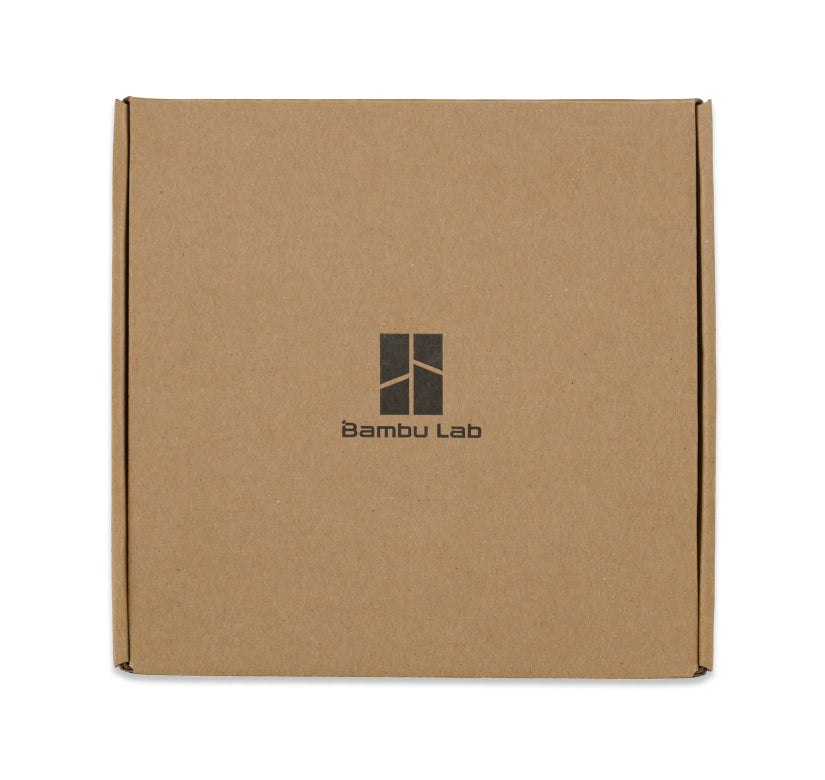

Package*1





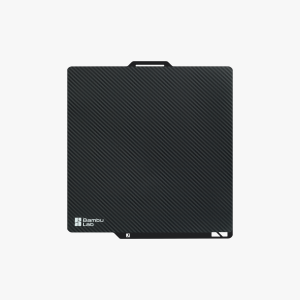
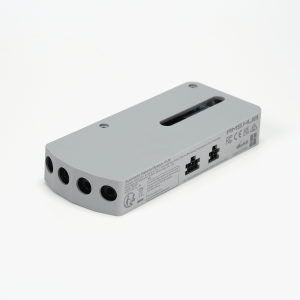
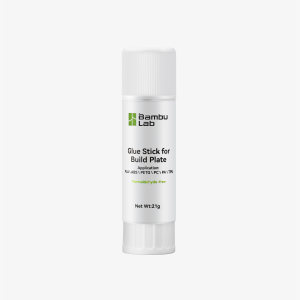

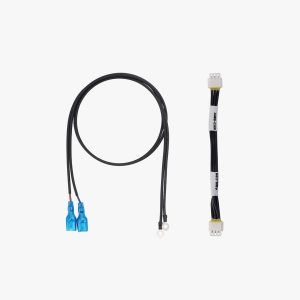
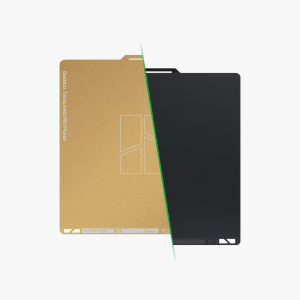
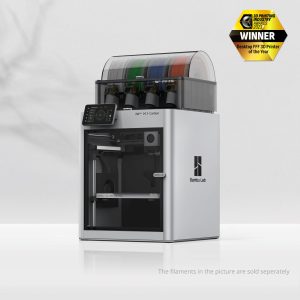
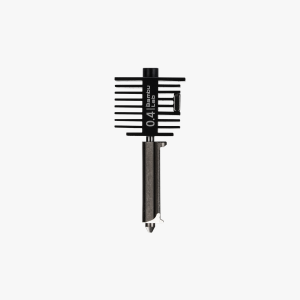
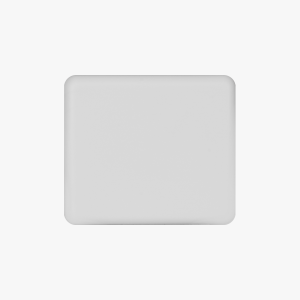


You must be logged in to post a review.